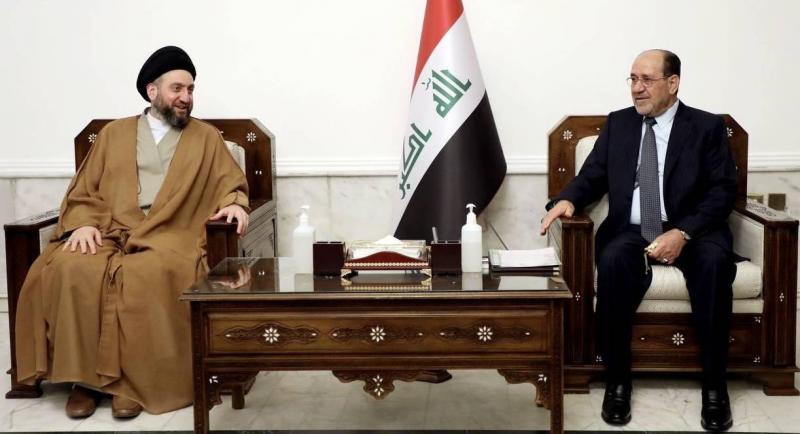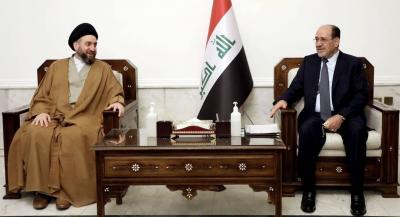On Thursday, the Wisdom Movement, led by Ammar al-Hakim, responded to the call from Nouri al-Maliki, leader of the State of Law Coalition, for early parliamentary elections at the end of this year, stating that the initiative is "born dead" and cannot be implemented.
Rahim al-Aboudi, a leader in the movement, clarified that "al-Maliki's call for early parliamentary elections at the end of this year represents his personal opinion and desire, and this idea has not been proposed or discussed among the forces of the coordinating framework, which also rejects the idea of early elections."
Al-Aboudi added that "the rejection of the idea of early elections by the coordinating framework is aimed at maintaining political stability and completing the Iraqi government's projects and plans amidst the existing political and popular satisfaction, and therefore there are no justifications for holding such elections; thus we believe that al-Maliki's call is born dead and cannot be enacted."
On Wednesday, al-Maliki called for early parliamentary elections by the end of this year 2024. In televised statements, he said that Prime Minister Mohammed Shia' al-Sudani's government is obligated to hold early elections as it is a requirement in the government program, stressing the need to prevent government officials from participating in the elections unless they resign from their positions.
On April 2, 2024, an MP from the coordinating framework, Mukhtar al-Moussawi, told Shafaq News that the idea of holding early parliamentary elections has been proposed by some forces within the coordinating framework, but there are difficulties in achieving it. He noted that it requires political consensus and early preparations by the Commission to succeed in this electoral process, and that the Commission is not prepared for this task.
Al-Sudani assumed the position of Prime Minister in October 2022, supported by the coordinating framework, in addition to a political alliance that includes Kurdish and Sunni forces. According to information, despite al-Sudani’s position as Prime Minister with support from the Shiite coordinating framework, he has some disagreements with Nouri al-Maliki, the former Prime Minister and a prominent figure in the framework, due to differing political and administrative visions.
On another note, al-Sudani enjoys support from the Asa'ib Ahl al-Haq, which has become an influential political force in Iraq. A government official stated that "this support reflects the balance of power in the Iraqi political arena, as al-Sudani relies on the backing of these factions to ensure the stability of his government and address the political and security challenges in the country, without implying their direct intervention in decision-making."




